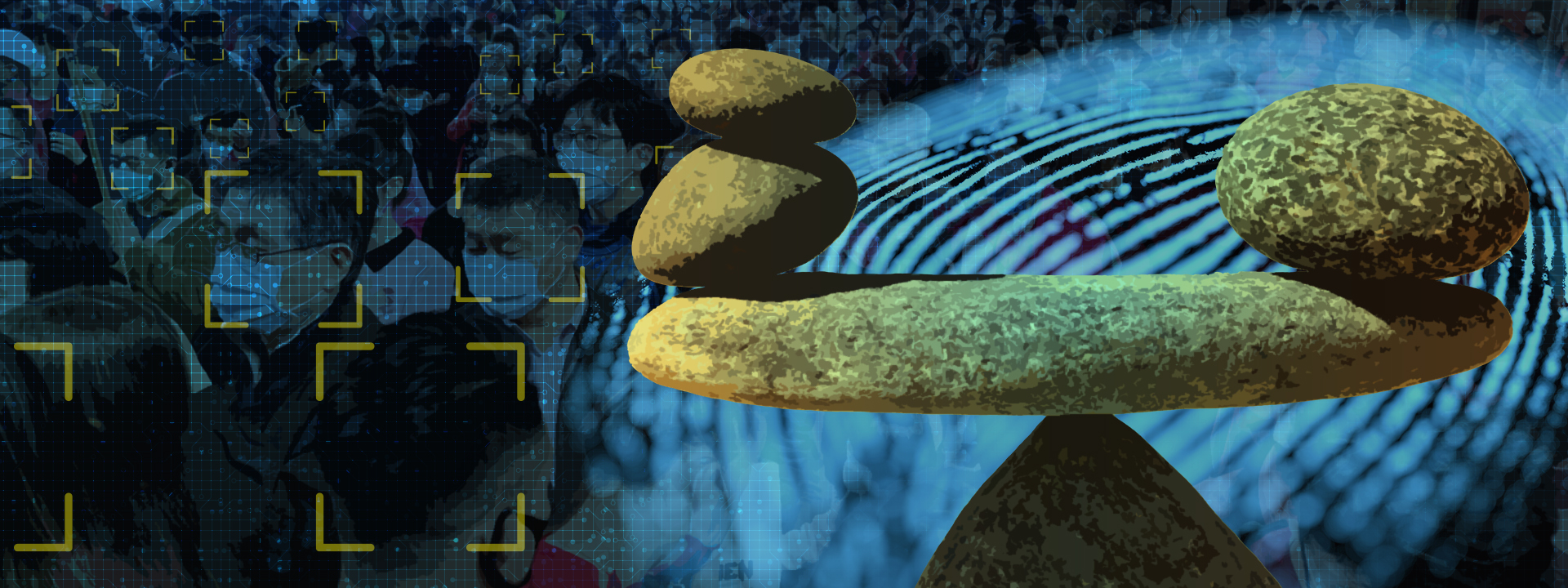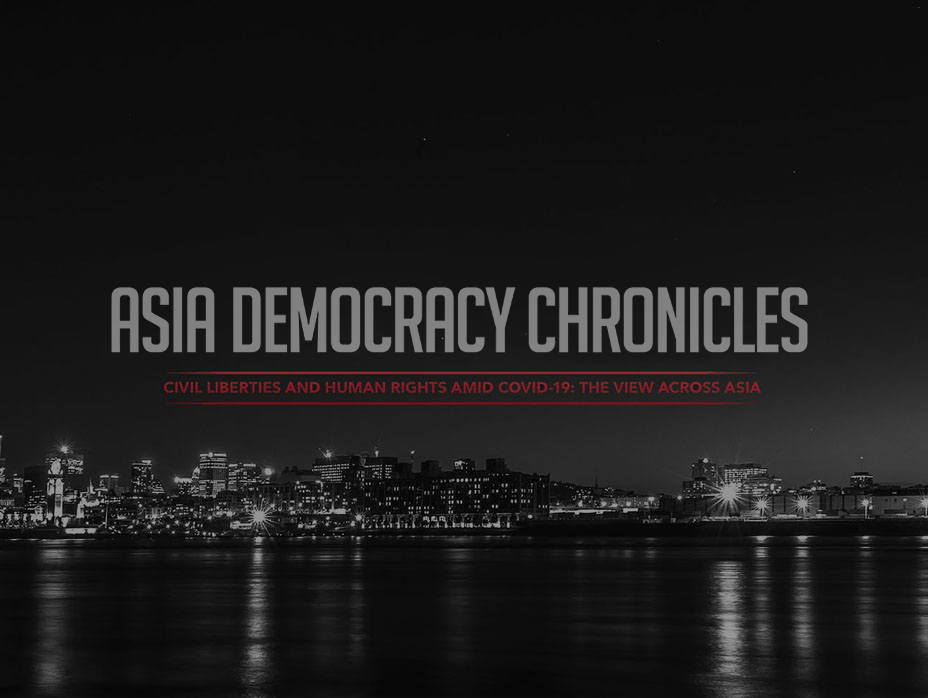Unlike many countries struggling to curb the spread of COVID-19, Taiwan has won international accolades for its handling of the pandemic. To date, it has only had just over 1,100 cases of COVID-19, and twelve deaths, from the pandemic.
Taiwan has enjoyed many long spells in which there were no cases of domestic transmission, with upticks in cases primarily imported from abroad, and has never undergone any lockdown in any part of the country. The island nation has thus been described as the “gold standard” in handling the COVID-19.
Such an impressive feat, however, has led to some contention from outside observers about whether Taiwan’s response to COVID-19 was authoritarian in any way.
In November 2020, New Zealand’s COVID Response Minister, Chris Hipkins, claimed that Taiwan’s response to the coronavirus was different from New Zealand’s, because it was “authoritarian” in nature.
New Zealand is another country whose COVID-19 response has been widely praised, offering a model that other countries could emulate. Unlike Taiwan, New Zealand underwent a national lockdown from March to May 2020, yet it has had a more highly ranked COVID-19 response than Taiwan.
The controversy regarding Hipkins’ comments does raise the question: Were there any authoritarian elements to Taiwan’s response to COVID-19? Taiwanese people have been highly defensive of their country’s COVID-19 response, as observed in the outpouring of public anger after a BBC article raised similar concerns.
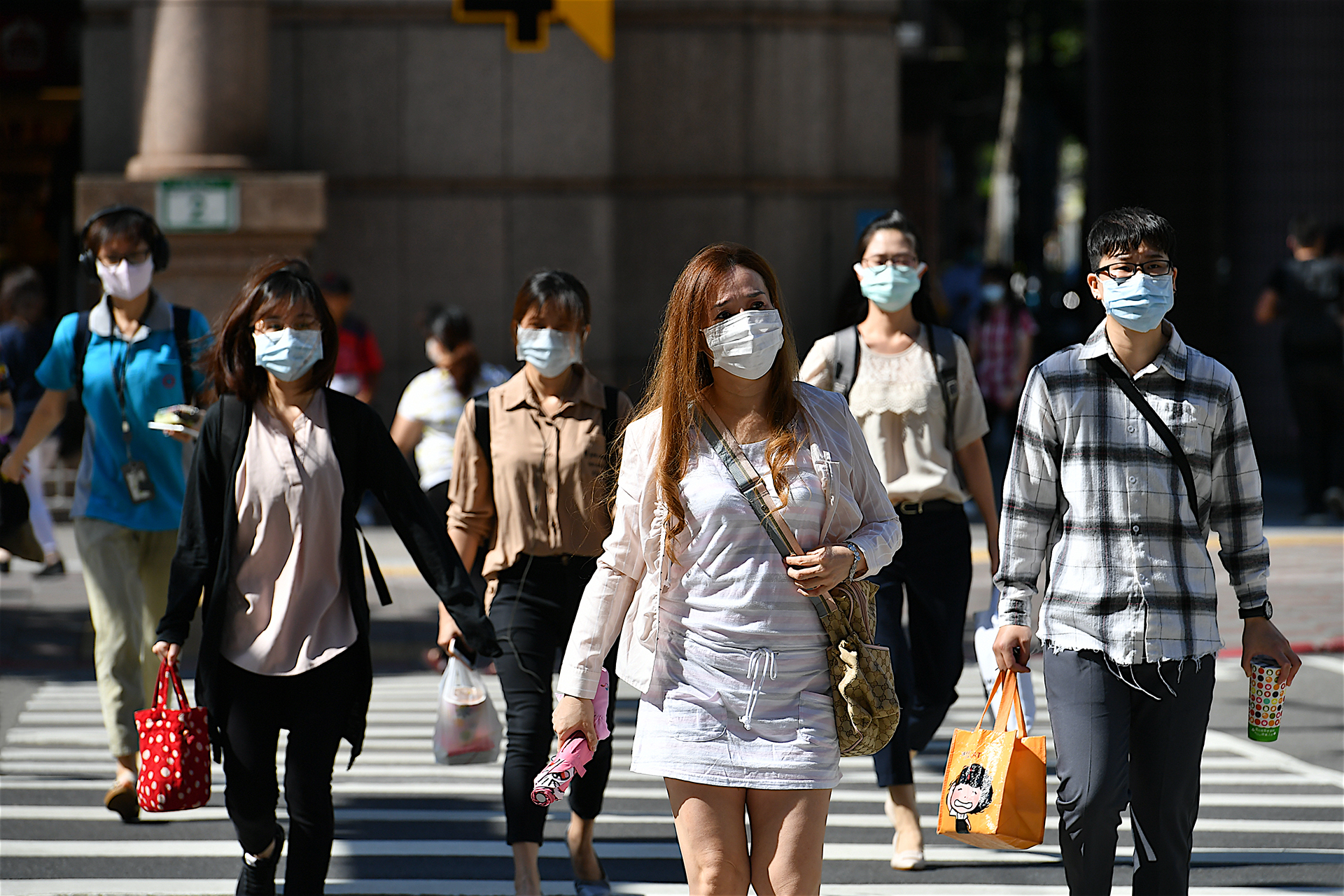
Pedestrians wear protective face masks on a street in Taipei, Taiwan during the global coronavirus epidemic.
Swift response
Taiwan’s success in fighting off COVID-19 can be attributed to a swift response by the government, which moved quickly to conduct health inspections of passengers arriving from China. It soon closed borders to China and other countries, and worked together with private industry to ensure that needed medical supplies, such as medical masks and personal protective equipment, were in ample stock.
The government also required the wearing of medical masks on public transport as well as in government buildings and other public venues. Likewise, 14-day quarantines were imposed on individuals returning from abroad, with an electronic tracking system and a system of community monitoring used to prevent people from breaking quarantine. Centralized quarantine facilities and a special system of buses and taxis for individuals needing to undergo quarantine were set up. Government databases were amalgamated so that doctors would be able to see if their patients had traveled abroad recently when they came in for visits.
To avoid the spread of misinformation and disinformation about the COVID-19 pandemic, the government held daily press briefings for updates on pandemic management. Information was also made available in a variety of formats for the benefit of specific demographics. For instance, there were humorous internet memes for young people and simple text and images for the elderly.
To allay public fears of potentially compromising the right to privacy while monitoring returnees from abroad, Taiwan’s Central Epidemic Command Center, which coordinates Taiwan’s COVID-19 response, said in May 2020:
“(I)n order to ensure personal data protection, proprietors of venues where customers’ personal data is collected must designate a person to be in charge of keeping a record of and maintaining personal data collected. Such data can be retained at most for 28 days and should be deleted after the specified period of time… [and] data may not be used for any purposes other than outbreak investigations.“
Concerns prompting such assurances are not unique to Taiwan. Civil and human rights advocates as well as international institutions like the United Nations have decried the use of COVID-19 by countries to expand their leaders’ powers and to widen the scope of data collected on their citizens. Concerns have also been raised about government surveillance of private citizens.
In Taiwan, media reports from Reuters, BBC, and Business Insider have quoted Taiwanese people about police visits triggered by cell phones that ran out of power or lost signal.
In general, the Taiwanese public does not see the expansion of government powers during the pandemic as an imposition on their personal freedoms. They view it as the use of technological surveillance without authoritarian characteristics.
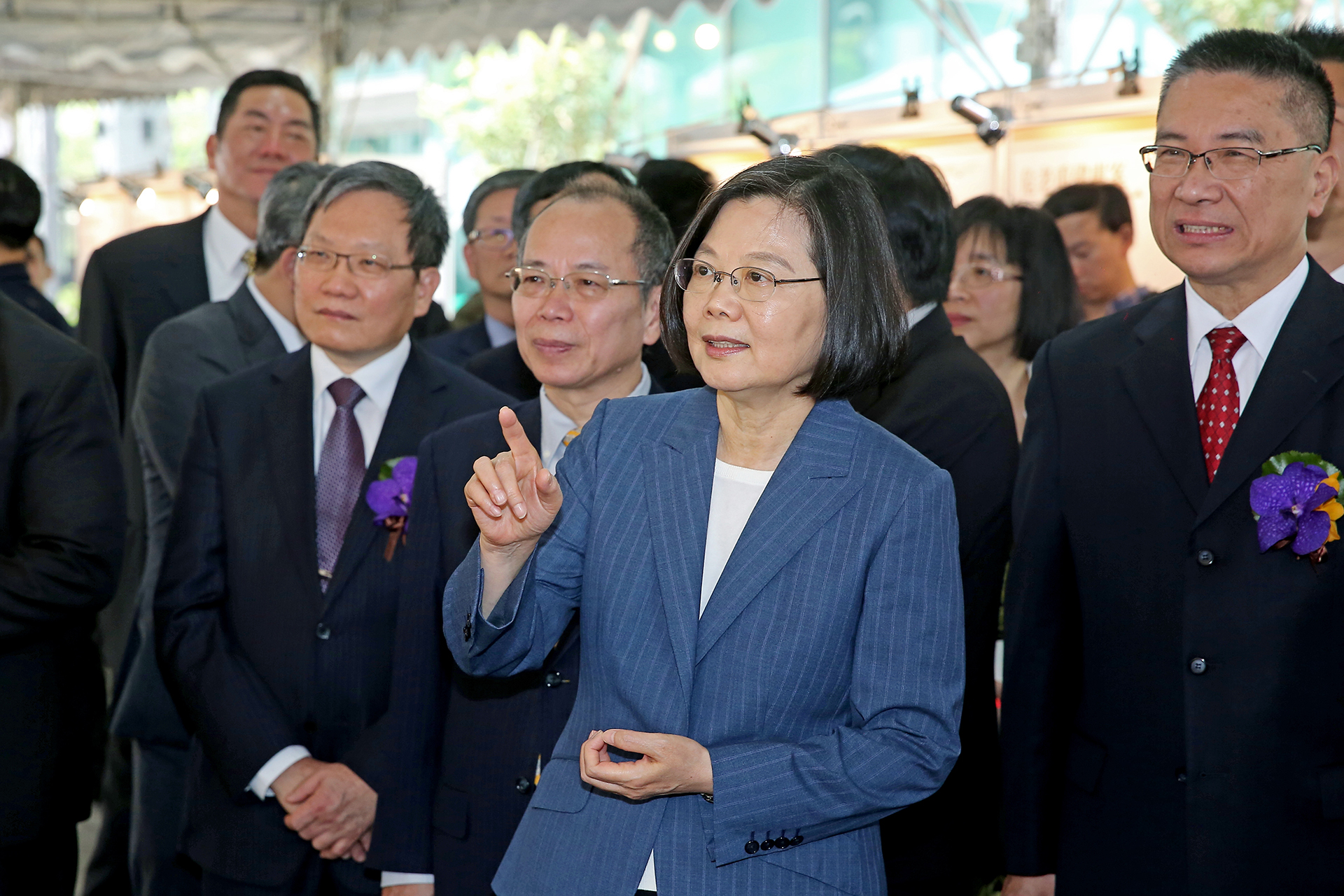
Prompt response to the COVID-19 outbreak, coupled with well thought-out measures, by the Tsai administration government spelled the difference in Taiwan’s successful handling of the pandemic. Still and all, the government must tread carefully on the complex issue of balancing individual rights and public safety.
Electronic national ID
One government measure, however, that sparked worries from concerned sectors was the planned rollout last year of a new electronic national identification card, or eID, by the Tsai administration.
The new ID card will integrate information databases regarding medical care, insurance, education, commerce, and government administration. But privacy advocates raised fears that eIDs could be turned on by default. The danger of the electronic ID lies in “put[ting too many eggs in the same basket,” says computer science researcher Chuang Tyng-Ruey, a critic of the plan. Amid backlash, the planned rollout was halted.
Essentially, the controversy hounding the new electronic ID was similar questions raised by the expanded powers taken on by the Taiwanese government to ensure compliance with quarantine measures during the pandemic. As such, even if the Tsai administration’s current use of electronic monitoring for the sake of pandemic prevention does not seem to have yet crossed the line, oversight is still deemed necessary.
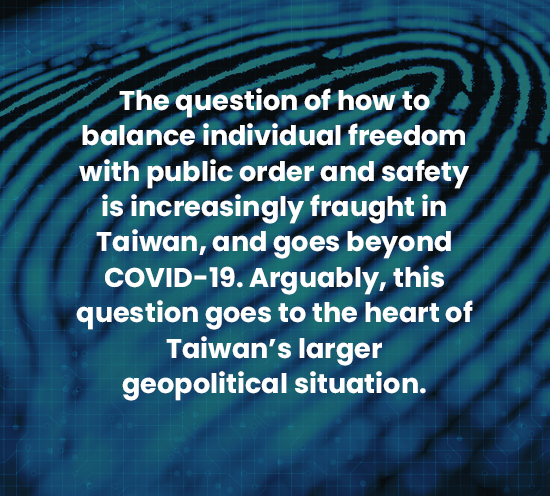 Beyond COVID-19
Beyond COVID-19
The question of how to balance individual freedom with public order and safety is increasingly fraught in Taiwan, and goes beyond COVID-19. Arguably, this question goes to the heart of Taiwan’s larger geopolitical situation.
Taiwan has long faced the threat of annexation by China. Despite Taiwan having a separate economy, currency, military, and democratically elected government, China has long claimed Taiwan to be an integral part of its territory.
China’s resolute efforts to wrest control of Taiwan are seen in the rise of Chinese disinformation targeting the island. Sometimes this is with the aim of influencing Taiwanese elections to ensure the victory of China’s preferred candidates. Disinformation experts believe China played a role in the meteoric rise from obscurity of politicians like the 2020 Kuomintang presidential candidate Han Kuo-yu belonging to the pro-unification pan-Blue camp.
Amid the pandemic, Chinese disinformation efforts are believed to have been spawned by China reacting to renewed international focus on Taiwan. For instance, part of China’s disinformation campaign is aimed at convincing the Taiwanese public that the Tsai administration is covering up the true rate of COVID-19 infections, or that government measures aimed at preventing the spread of COVID-19 have gone too far and are hurting the Taiwanese economy.
The challenge posed by the need to balance basic freedoms with public health safety also arises from Taiwan’s authoritarian past, from which it evolved into the liberal democracy that it is today, with the ruling Democratic Progressive Party (DPP) having emerged from the democracy movement starting in the 1980s. The opposition Kuomintang (KMT), which advocates the political unification of Taiwan and China, is the former authoritarian party.
The specter of police conducting surveillance of private citizens, such as occurred during the pandemic to maintain quarantines may not have sparked public anger. Yet, the public is usually highly sensitive to this issue given Taiwan’s political past.
The Kuomintang has accused the DPP of politically persecuting opponents through actions aimed at reining in Chinese disinformation. This happened, for instance, when the Tsai administration declined to renew the broadcasting license of CtiTV News after the network’s misleading coverage of KMT presidential candidate Han Kuo-yu. This became apparent in the network’s reporting of an inflated crowd count for Han’s mayoral inauguration and its claim that an “auspicious cloud” appeared above Han and two other KMT mayors during a rally. It also devoted 70% of airtime to coverage of Han in May 2019.
To avoid reinforcing perceptions of persecuting political opponents, the Tsai administration has generally refrained from arresting individuals accused of organizing spy rings for China. These include the three youth spokespersons of the pro-unification New Party that were detained on such charges in December 2017, and pro-unification gangster “White Wolf’ Chang An-le, who has repeatedly committed acts of political violence against advocates of independence. The New Party spokespersons remained free and were even allowed to travel to China, while Chang has not been jailed.
In the days ahead, Taiwan will continue to face questions around balancing fundamental rights and public safety, notwithstanding the success of its COVID-19 control. ●
Brian Hioe is one of the founding editors of New Bloom. He was Democracy and Human Rights Service Fellow at the Taiwan Foundation for Democracy from 2017 to 2018.










